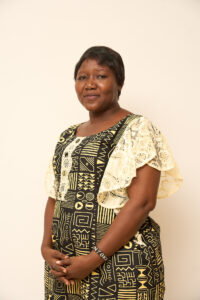During a training on GBV conducted by Eve Organization for Women Developmentin Jonglei State, the women disclosed that when cases are taken to family courts and settled at family level, women are denied their rights.
Chiefs never come into agreement with the judges who observe statutory laws hence making the judiciary worthless. There is a conflict between the statutory laws and rights granted to women and children in customary courts.
A magistrate at Bor Municipal Council who attended the workshop said there should be a mechanism developed by the law makers, local authorities and the judiciary to resolve these issues.
The magistrate added that judges in Jonglei state are frustrated in addressing issues related to rape, defilement, early and forced marriage. This is because the customary courts have more power than the statutory laws hence making adherence to human rights a challenge.
It’s the mandate of the Ministry of Education, Gender, Child and Social Welfare to take care of women issues and the vulnerable groups especially the victims of GBV, women who have been assaulted, cases of divorce, rape during conflict by men in uniform and forced marriage. But when cases are referred to the judges by the ministry, less is done due to the interference of the communities.
“The men who paid heads of cattle as dowry seem to be far away from the idea of human rights. They still demand to know who the wife to human rights is?” said a participant.
The magistrate cited a case in which an old man raped a 13-year-old girl and the relatives insisted that the girl was not thirteen but older because they had reached an agreement to marry her off. “The parent asked, ‘so you say she is young, are you the one who gave birth to her?” the magistrate narrated.
The Ministry of Education, Gender, Child and Social Welfare intervened and advised that if the parents had decided to marry off the girl to the perpetrator, they should at least wait until she turns 18-years, but mean while legal measures must be taken against the man.
The decision of the ministry to take legal measures against the perpetrator failed because the family resorted to the customary court. Result of the customary court ruling was that the man pays thirty heads of cattle as dowry. And since they had involved the chief, the judges had no power to proceed.
The magistrate expressed worries that the community has contributed a lot in failing the law. She added that if the community allows the judges to implement the rulings, causes of GBV and rape would reduce.
Like any other community in the remote places of South Sudan, some communities in Jonglei state value their culture more than the statutory laws. If the mother was married using heads of cattle, definitely they expect the daughter to be given out in exchange for cattle. They say human rights are observed by those who paid dowry inform of cash not cattle.
And in order to fetch a big number of cows, the girl has to be married off when she is still young because of the concept that then she will be able to give birth to a bigger number of kids.
The judges wrote to the women parliamentary caucus to make a bill that will be discussed so that it’s passed into new laws.
According to the system in South Sudan, there are laws at all levels, the judiciary has got its own laws, the state, and likewise the national government. Suzan says, if the judges see that the problem is going beyond their management and requires state intervention, they should switch on to the national or state laws.
The long civil wars affected the legal system of settling issues. The customary laws were since then the main source of order in the society. And to this day, domestic issues are referred to the family courts that mostly violate the rights of women.


